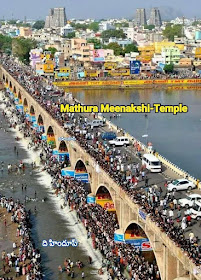Sunday, November 13, 2016
Hamsa and Dimbaka
Kansa had two ministers, Hamsa and Dimbaka, brothers who were totally devoted to each other. In the battle some other king by the name Hamsa was killed and when Dimbaka heard of this, the jumped into the Yamuna and committed suicide, thinking it was his brother who had been killed. He did not want to live without his brother. And when Hamsa heard this, he too jumped into the Yamuna and killed himself.
Friday, September 2, 2016
Krishna Janmabhoomi / Site / Map / More

https://en.wikipedia.org/wiki/Shri_Krishna_Janmabhoomi
http://en.brajdiscovery.org/index.php?title=Krishna_Janma_Bhoomi
http://wikimapia.org/14354655/Temple-at-Sri-Krishna-Janmabhoomi
http://hariharji.blogspot.com/2008/08/mathura-lord-krishnas-birthplace.html
Tube
https://www.youtube.com/results?search_query=Krishna+Janmabhoomi
Slides
http://www.slideshare.net/search/slideshow?searchfrom=header&q=Krishna+Janmabhoomi
Wednesday, August 3, 2016
Ten Rasas
SB 10.43.17
mallānām aśanir nṛṇāṁ nara-varaḥ strīṇāṁ smaro mūrtimān
gopānāṁ sva-jano ’satāṁ kṣiti-bhujāṁ śāstā sva-pitroḥ śiśuḥ
mṛtyur bhoja-pater virāḍ aviduṣāṁ tattvaṁ paraṁ yogināṁ
vṛṣṇīnāṁ para-devateti vidito raṅgaṁ gataḥ sāgrajaḥ
Word for word:
mallānām — for the wrestlers; aśaniḥ — lightning; nṛṇām — for the males; nara-varaḥ — the best of men; strīṇām — for the women; smaraḥ — Cupid; mūrti-mān — incarnate; gopānām — for the cowherds; sva-janaḥ — their relative; asatām — impious; kṣiti-bhujām — for the kings; śāstā — a punisher; sva-pitroḥ — for His parents; śiśuḥ — a child; mṛtyuḥ — death; bhoja-pateḥ — for the King of the Bhojas, Kaṁsa; virāṭ — the totality of the material universe; aviduṣām — for the unintelligent; tattvam — the Truth; param — Supreme; yoginām — for the yogīs; vṛṣṇīnām — for the members of the Vṛṣṇi dynasty; para-devatā — their most worshipable Deity; iti — in these ways; viditaḥ — understood; raṅgam — the arena; gataḥ — He entered; sa — along with; agra-jaḥ — His elder brother.
Translation:
“[There are ten different moods:] fury [perceived by the wrestlers], wonder [by the men], conjugal attraction [the women], laughter [the cowherds], chivalry [the kings], mercy [His parents], terror [Kaṁsa], ghastliness [the unintelligent], peaceful neutrality [the yogīs] and loving devotion [the Vṛṣṇis].”




